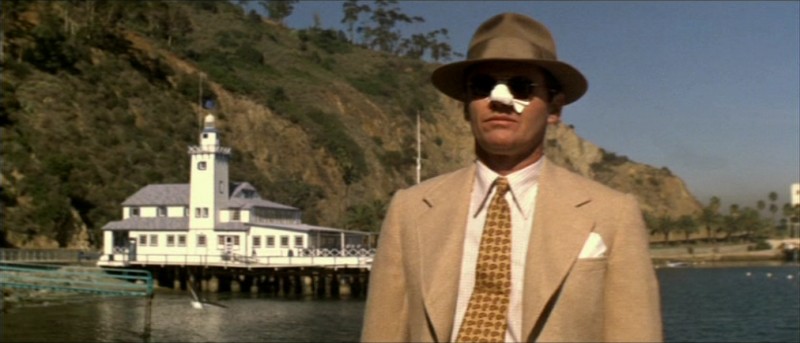So much has been written about Chinatown over the years, that such a review as this would scarce do it credit. All the ingredients are in place for a brooding, lean, mystery. Jack Nicholson (in a career defining role) is cynical private eye JJ Gittes, drawn into the web of mystery weaved by the ubiquitous femme fatale. Gittes knows better than anybody the cost of involvement, often giving the impression he knows how this will play out, and yet he finds himself drawn into murder, scandal and corruption in 1930s Los Angeles.
Given the countless imitators spawned by Chinatown, it’s easy to discount how influential this film was on its release. Roman Polanski’s direction (his last film shot in the USA) presents an LA that is both familiar and alien. Robert Towne‘s script (often cited as a textbook example) is a masterpiece in pace and plotting. John Huston stands out as the ruthless tycoon, crushing anything that stands between him and his control of LA’s water supply, but it is Nicholson, the cynical, sarcastic, anti-hero, who provides the film’s heart.
Chinatown is a reminder of how Hollywood used to produce great films – an age where writers and directors were entrusted with scripts and cash, told to go off and make a film, and come back when the job was done. The 1970s produced many a great film: Jaws, The Godfather, various Scorsese pictures and to a lesser extent, Star Wars. Chinatown is the standout, a timely reminder that power corrupts, and corruption kills. Given the background in which it was released (Vietnam, Watergate) it stands as potent reminder that the best intentions often lead to the worst outcomes.
